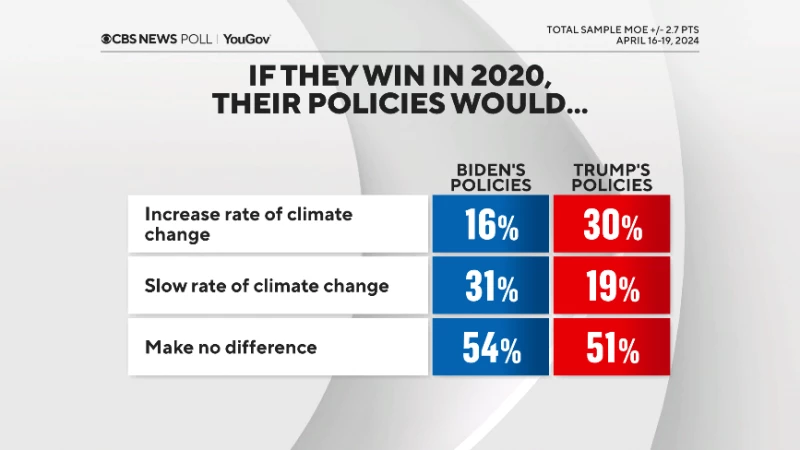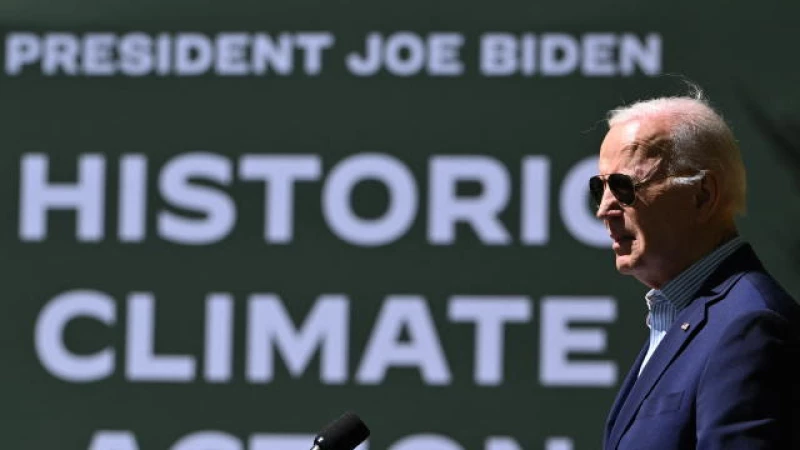President Joe Biden centered his 2020 campaign around addressing climate change. Now, three years into his presidency, what do those who are most passionate about this issue think of his efforts? How much information do they have?
Surprisingly, few Americans claim to be well-informed about the administration's actions on climate change. This lack of awareness extends to members of the president's own party and to individuals who consider climate change a top priority. In fact, half of them admit to knowing very little or nothing at all about the administration's initiatives.
Consequently, those who emphasize the importance of climate change are somewhat dissatisfied — a majority believe that the president has not done enough to combat it.
However, once they become acquainted with the Biden administration's policies, they tend to approve of them.
Climate change: An issue important to Biden's base
Climate change is not the most important issue for Americans overall; it trails economic issues and matters like crime and immigration. But most Democrats, liberals, those who voted for Mr. Biden in 2020 and many younger people place a lot of importance on the issue. These groups will be crucial to Mr. Biden in November.
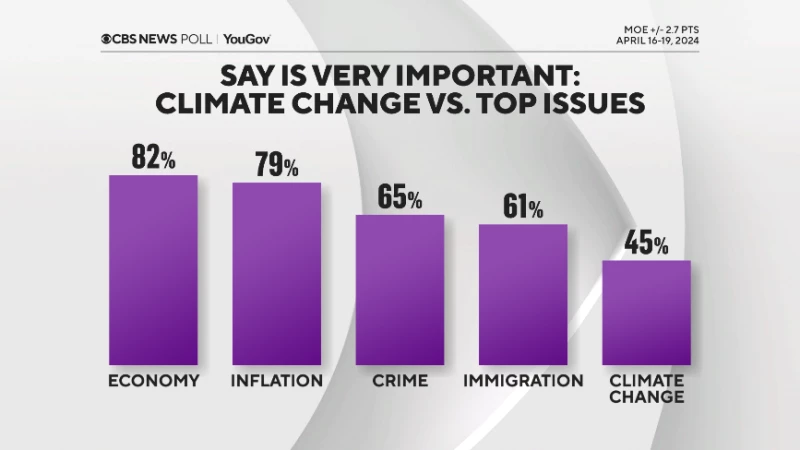
Just 10% of Americans who say climate change is a very important issue have heard or read a lot about what the Biden administration has done so far to deal with it. And when evaluating the Biden administration, many think it has done too little to address it.
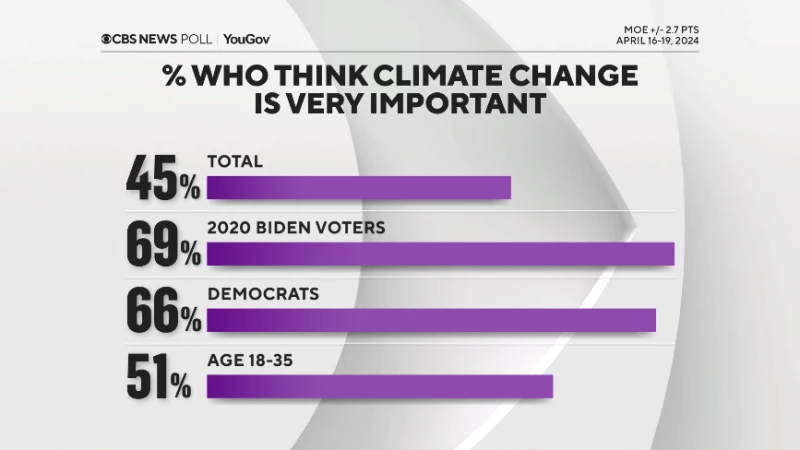
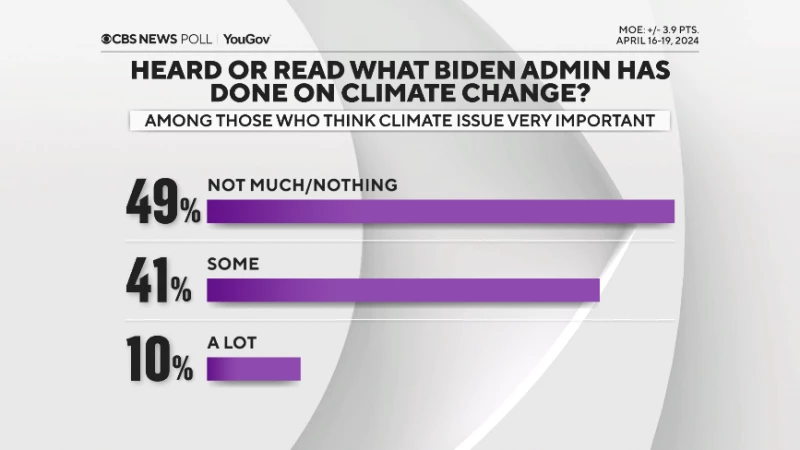
When presented with some of the Biden administration's climate change policies, a majority of those who place a lot of importance on climate change — from enhanced regulations, to reducing toxic chemicals in drinking water, to tax rebates for buying an electric vehicle — favored the policies.
Even people who feel the administration has done too little on climate change support these policies. So this may be more about Mr. Biden needing to get his message out there than having to convince this "climate constituency" — those who call the climate issue very important — of the substance of his policies.
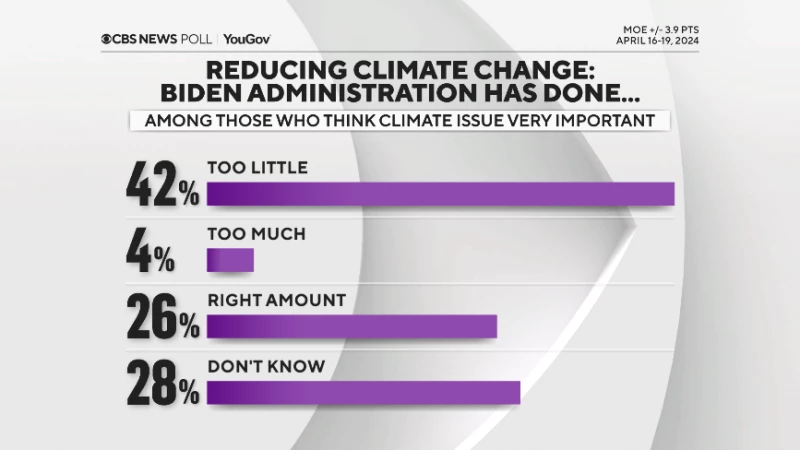
What is the "climate constituency" looking for?
Nine in 10 of those who call the climate issue very important support the country taking steps to stop or slow the rate of climate change, and if they had to choose, they overwhelmingly would prioritize protecting the earth's climate over energy production.
And most agree with the administration and Democratic leaders that efforts to reduce climate change would help the economy, not hurt it, putting them at odds with those who place little or no importance on the issue.
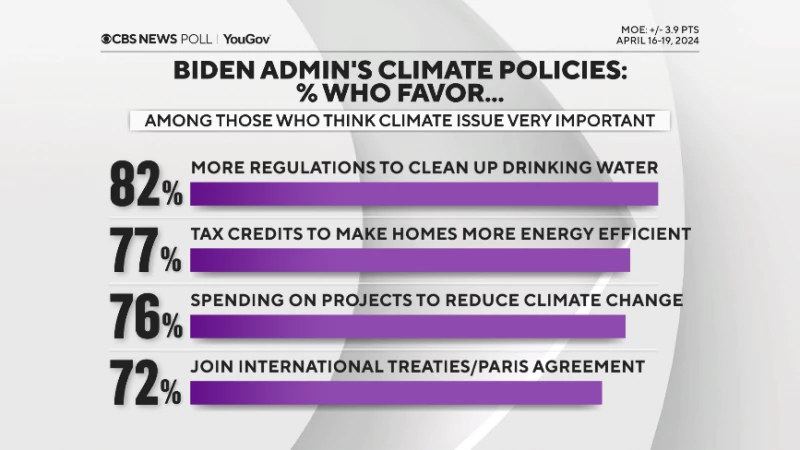
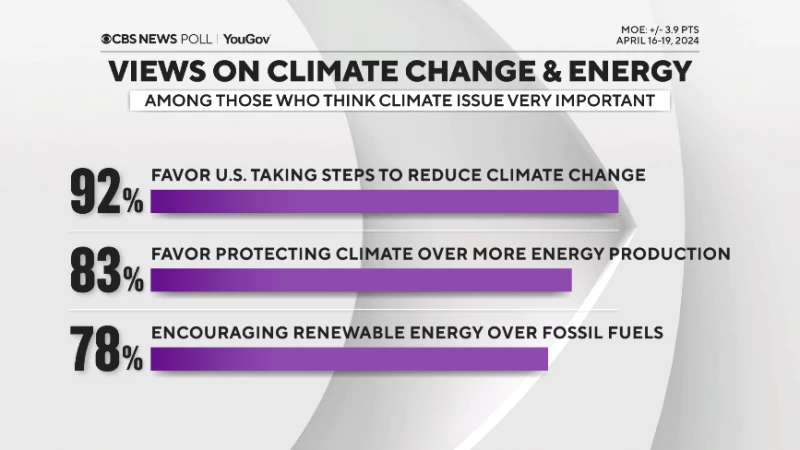
2024 presidential candidates and climate change
While this "climate constituency" would like to see Mr. Biden do more, they do prefer his approach to climate change and energy policy to former President Donald Trump's. It's the public at large that is not convinced, and that adds up to Mr. Biden running about even with Trump among people who are asked whose approach to the issue they agree with more. More than a quarter pick neither.
Americans who think the issue of climate change is very important and those who want an energy policy that moves away from fossil fuels in favor of renewable energy sources prefer Mr. Biden's approach on both climate and energy, while those who place little importance on climate change and who want to encourage greater production of fossil fuels favor Trump's approach.
This cuts heavily to partisanship as well, though independents — who think efforts to fight climate change will hurt rather than help their finances — lean more towards Trump's approach than Mr. Biden's.
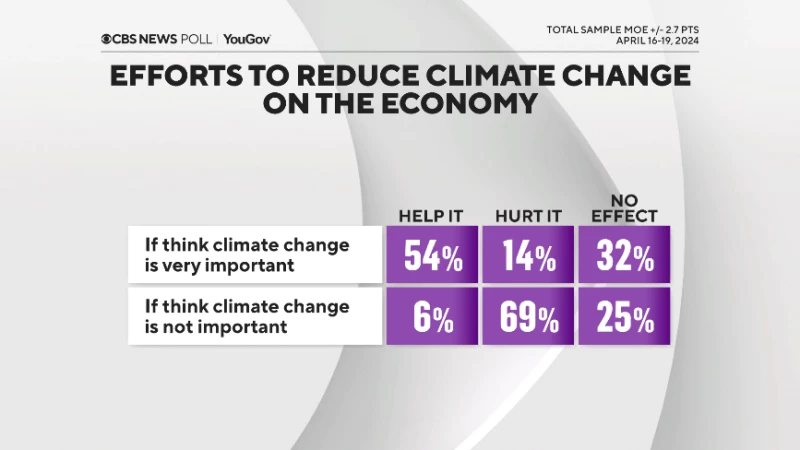
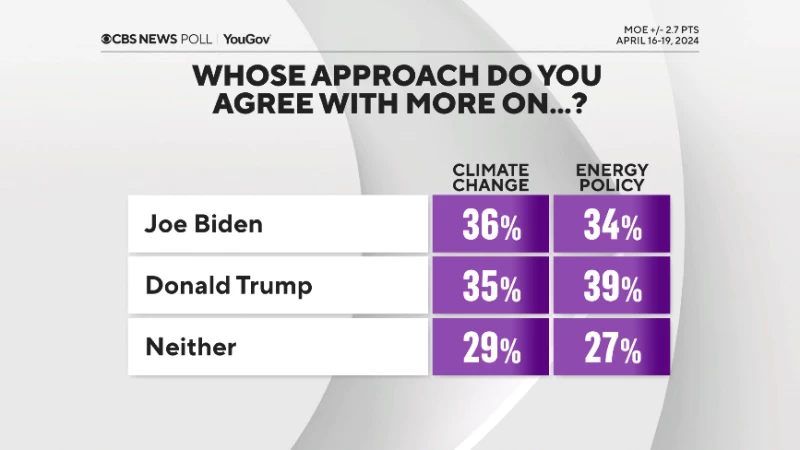
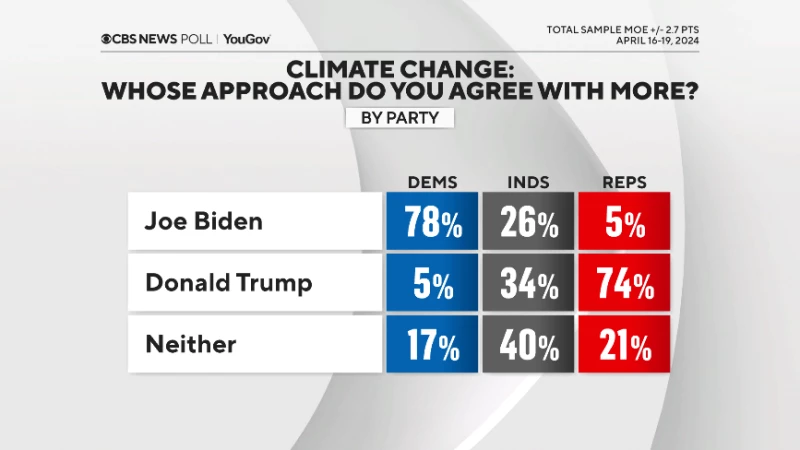
Looking ahead, there's skepticism that either candidate can do much about climate change if elected in November.
According to recent findings, there is a general belief that Mr. Biden will work to slow down the rate of climate change, while Trump's presidency would likely result in an increase. However, half of the population remains indifferent, believing that the outcome of the 2024 election will have no impact on the issue.
Individuals with a more fatalistic perspective on climate change, either believing that humanity is powerless to address it or denying its existence altogether, are the most inclined to think that the election results will not bring about any change.
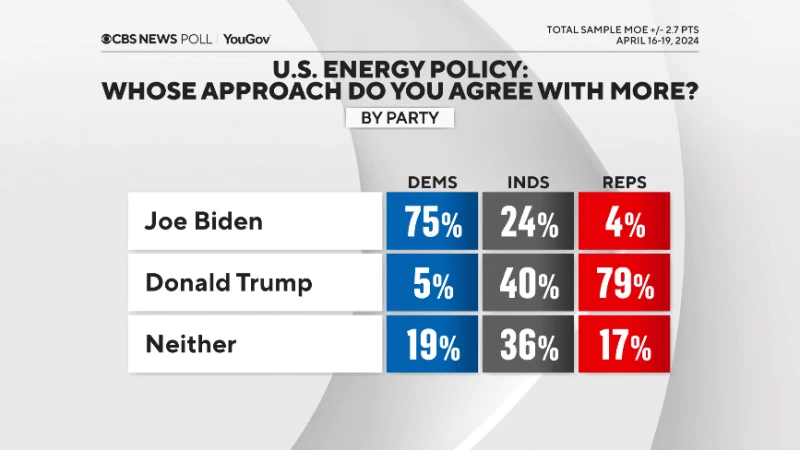
This survey, conducted by CBS News/YouGov, involved 2,230 U.S. adult residents and took place between April 16-19, 2024. The sample was weighted based on gender, age, race, education, and past voting patterns, in alignment with data from the U.S. Census American Community Survey and Current Population Survey. The margin of error for the results is ±2.7 points.
